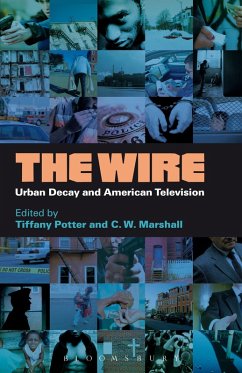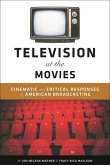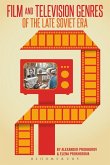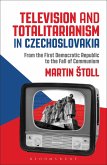The first collection of critical essays on HBO's The Wire - the most brilliant and socially relevant television series in years
The Wire is about survival, about the strategies adopted by those living and working in the inner cities of America. It presents a world where for many even hope isn't an option, where life operates as day-to-day existence without education, without job security, and without social structures. This is a world that is only grey, an exacting autopsy of a side of American life that has never seen the inside of a Starbucks.
Over its five season, sixty-episode run (2002-2008), The Wire presented several overlapping narrative threads, all set in the city of Baltimore. The series consistently deconstructed the conventional narratives of law, order, and disorder, offering a view of America that has never before been admitted to the public discourse of the televisual. It was bleak and at times excruciating. Even when the show made metatextual reference to its own world as Dickensian, it was too gentle by half.
By focusing on four main topics (Crime, Law Enforcement, America, and Television), The Wire: Urban Decay and American Television examines the series' place within popular culture and its representation of the realities of inner city life, social institutions, and politics in contemporary American society. This is a brilliant collection of essays on a show that has taken the art of television drama to new heights.
The Wire is about survival, about the strategies adopted by those living and working in the inner cities of America. It presents a world where for many even hope isn't an option, where life operates as day-to-day existence without education, without job security, and without social structures. This is a world that is only grey, an exacting autopsy of a side of American life that has never seen the inside of a Starbucks.
Over its five season, sixty-episode run (2002-2008), The Wire presented several overlapping narrative threads, all set in the city of Baltimore. The series consistently deconstructed the conventional narratives of law, order, and disorder, offering a view of America that has never before been admitted to the public discourse of the televisual. It was bleak and at times excruciating. Even when the show made metatextual reference to its own world as Dickensian, it was too gentle by half.
By focusing on four main topics (Crime, Law Enforcement, America, and Television), The Wire: Urban Decay and American Television examines the series' place within popular culture and its representation of the realities of inner city life, social institutions, and politics in contemporary American society. This is a brilliant collection of essays on a show that has taken the art of television drama to new heights.









